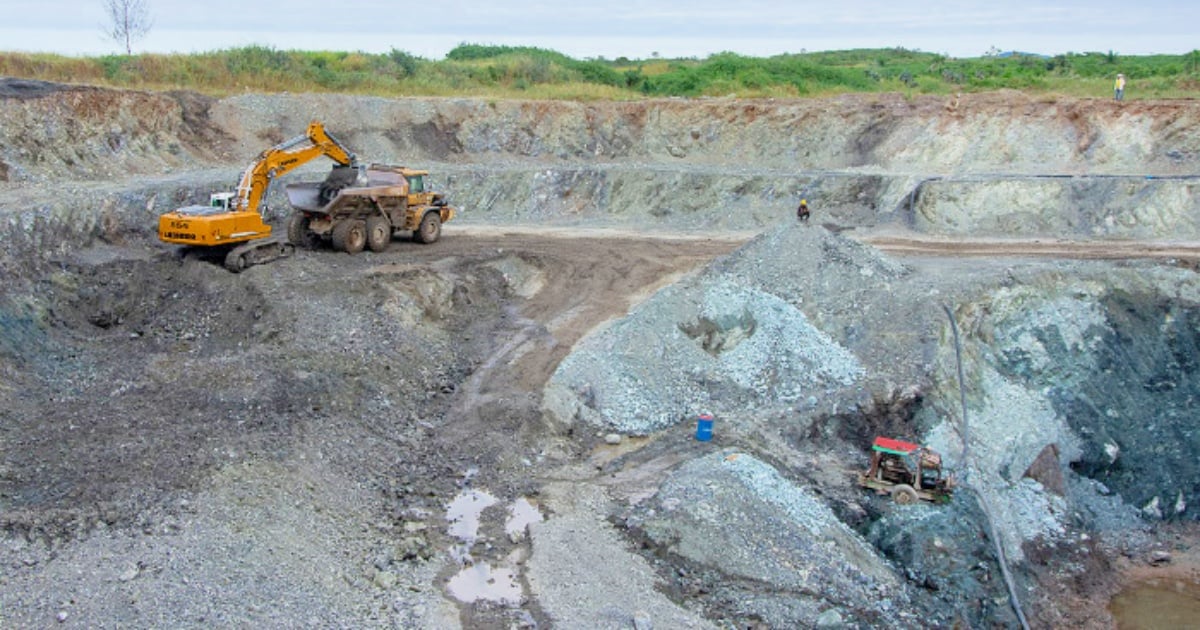The Cuban regime has announced the cancellation of several mining licenses within the country, as detailed in the Official Gazette of the Republic of Cuba. The decision, made by the Executive Committee of the Council of Ministers earlier this month, declared numerous mining areas as "open land" and invited new applications for their use.
The revoked licenses include those granted to commercial entities such as COMMERCIAL CARIBBEAN NICKEL S.A., GOLD CARIBBEAN MINING S.A., Geominera Camagüey Company, and the Metal-Mechanical Company Varona.
Grounded in the Law 76 "Mining Law" from December 21, 1994, this decision permits the Council of Ministers to terminate mining licenses after the geological research periods have expired. Article 60 of this law supports the action based on the expiration of terms.
Impacted Companies and Their Concessions
COMMERCIAL CARIBBEAN NICKEL S.A. operated in the San Felipe III area across Camagüey, Florida, and Esmeralda municipalities. It extracted minerals like limonite and serpentine, containing iron, nickel, cobalt, aluminum, chromium, and magnesium. This license, effective since 2013, was extended until it expired in November 2024.
GOLD CARIBBEAN MINING S.A. engaged in geological research in the Florencia-Maclama-Golden Hills zone, covering Guáimaro (Camagüey) and Jobabo (Las Tunas) municipalities. The company focused on gold, silver, copper, lead, and zinc. Its license, granted in 2021, expired with no renewal opportunity.
The Geominera Camagüey Company explored gold in the Guáimaro-Las Tunas area, with activity in Guáimaro (Camagüey), Colombia, Jobabo, and Las Tunas (Las Tunas). Its license, renewed twice, ended in December 2024.
Metal-Mechanical Company Varona concentrated on metallic mineral research in the Iron-Scandium area of Moa, Holguín. It analyzed processing waste from the "Comandante Ernesto Che Guevara" plant. Its license concluded in December 2024.
Implications and New Opportunities
With these license cancellations, the affected companies are required to fulfill any outstanding fiscal and environmental obligations before their final withdrawal. Simultaneously, the regime has opened the door for new mining license applications, potentially reshaping Cuba's extractive sector.
It remains uncertain whether the government will allocate these licenses to new entities or prioritize foreign investment amidst an economic crisis and lack of funding for mining exploitation on the island.
In response to skepticism about the stability of mining investments in Cuba, Fabio José Raimundo Paz, a director at Geominera Camagüey, defended the government's decision. "The revocation was done according to the law, due to the concessionaires' lack of interest in executing agreed-upon work, and only after multiple extensions were granted," he stated.
He further explained that "it's a normal reaction from those who receive the licenses. Some projects progress to stages that allow studies in new, more promising areas, others conclude without the expected results, and several are revoked due to the concessionaire's failure to provide the financing or resources necessary to continue the work."
As of the publication of this article, no further details have been released regarding the cancellation of several mining licenses in Cuba.
Understanding Cuba's Mining License Cancellations
Why were the mining licenses in Cuba revoked?
The licenses were revoked due to the expiration of geological investigation periods and the lack of interest from the concessionaires in executing the agreed-upon work.
What will happen to the areas with revoked mining licenses?
The areas are now open for new applications, offering potential opportunities for new entities or foreign investments to reshape Cuba's mining sector.
How might this impact foreign investment in Cuba?
The revocation of licenses could either deter or attract foreign investment depending on how the government addresses new concessions amidst the current economic crisis.
